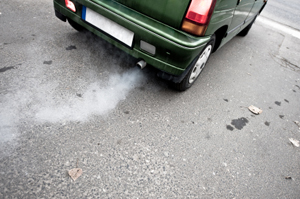
Many Lower Mainland residents dismiss AirCare as an annoyance, or perhaps a bi-annual $45 cash grab. Hardcore skeptics might claim the program is useless: modern cars pollute much less than older models. Send AirCare to the scrap heap, they say.
Time for a reality check, folks. Fresh air is a precious commodity. Transportation accounts for nearly 40 per cent of British Columbia's greenhouse gas emissions. If we really hope to keep our air breathable -- and curb catastrophic climate change -- we need to reduce the emissions coming out of our exhaust pipes. Ideally, we should drive less. But when we drive, we need our cars to be as emission-efficient as they can be. We owe this to our planet, to ourselves and to the most vulnerable in society: children, seniors and anyone with breathing problems.
Cheap and efficient
A fully independent review recently commissioned by Metro Vancouver says that AirCare is the most cost-effective way of removing auto emissions from the air. In fact, the program is cheaper and more efficient than any other transportation-based measure to reduce pollution. AirCare catches nearly 50,000 cars that still fail the test every year -- nearly 15 per cent of the total. And the actual emission performance of newer vehicles is deteriorating more rapidly than initially thought, the report warned, citing data from California and other jurisdictions. The argument that AirCare isn't needed because new cars pollute less simply doesn't fly.
The environmental and health benefits of AirCare will outweigh the program costs until at least 2020, the report says. The consultants used the most conservative emissions and health benefits estimates possible, just to be sure. Moreover, $77 million can be saved in health care costs by extending AirCare, the report says. AirCare's health benefits may be hard to quantify, but the bottom line is that nobody wants to see increased rates of cancer, premature births, or hospital admissions for respiratory diseases due to an increase in auto emissions. We should not ever forget the August smog-laden, air quality warning days, even in the middle of November.
The dollars and sense
Far from being a cash grab, AirCare is actually revenue neutral: the program is funded entirely through the collection of test fees. In fact, it is required by legislation to be revenue neutral. The $45 test fee should be viewed as part of the cost of operating an older yet emission-efficient vehicle. Often overlooked is the fact that AirCare drives economic growth: $35 million in car repairs and $21 million in new car purchases every year can be linked to our emissions testing program. The cash grab argument is out the window, so to speak.
Last but not least, AirCare inspectors perform real "green jobs." Their valuable work drives economic growth, and limits our collective environmental footprint at the same time. In a future low-carbon economy, all jobs will integrate environmental and energy efficiency into their work. British Columbia's economy will increasingly rely on green jobs of the kind AirCare workers perform.
The mayors and councillors of Metro Vancouver come together this Friday to consider extending AirCare until 2020. They will hopefully arrive at the same conclusion as Ontario and the State of Washington recently did: extending vehicles emissions programs such as AirCare makes economic and environmental sense. Expanding the program to focus on heavy-duty diesel vehicles would simply reinforce that message. ![]()
Read more: Transportation, Labour + Industry, Environment














Tyee Commenting Guidelines
Comments that violate guidelines risk being deleted, and violations may result in a temporary or permanent user ban. Maintain the spirit of good conversation to stay in the discussion.
*Please note The Tyee is not a forum for spreading misinformation about COVID-19, denying its existence or minimizing its risk to public health.
Do:
Do not: